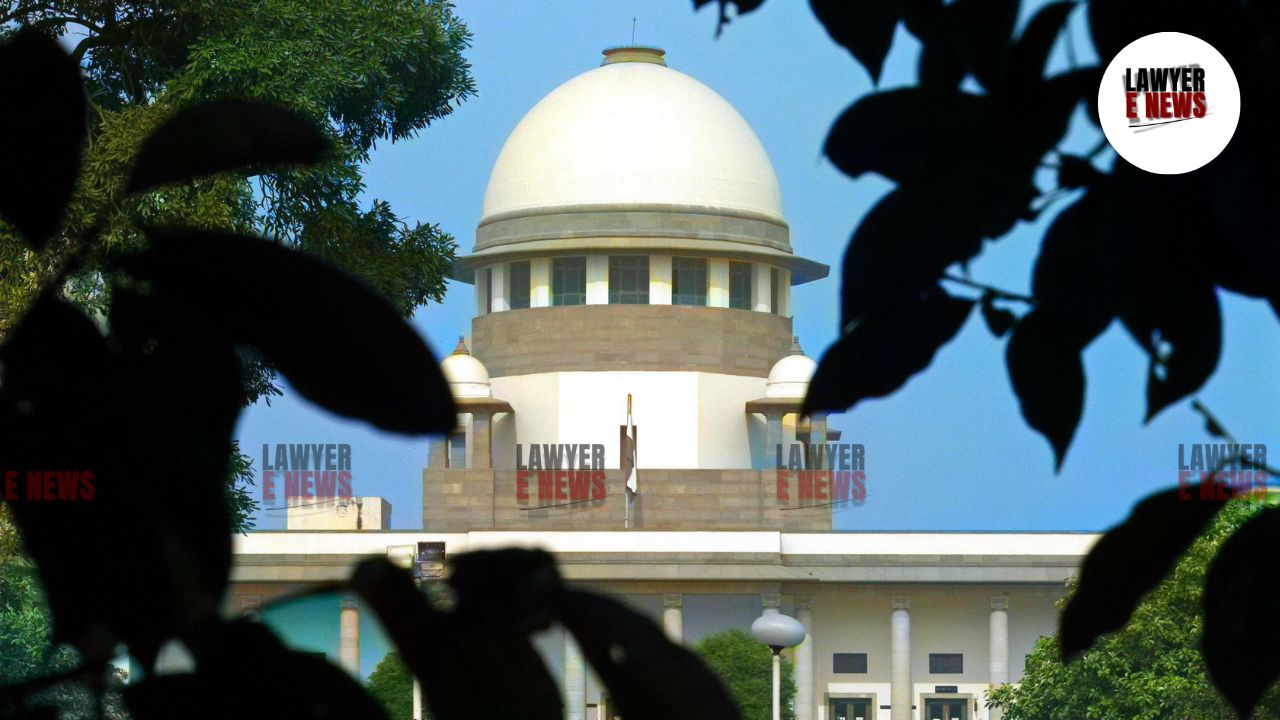-
by Admin
15 February 2026 5:35 AM



The Supreme Court set aside an interim order passed by the Andhra Pradesh High Court, which directed the parties to maintain status quo in a second appeal without framing substantial questions of law under Section 100 of the Code of Civil Procedure (CPC), 1908. The apex court held that such interim relief violated the jurisdictional mandate under Section 100 CPC, which requires substantial questions of law to be framed before any substantive orders can be issued.
"Jurisdiction Under Section 100 CPC Is Conditional Upon Framing Substantial Questions of Law": Supreme Court
In the case of U. Sudheera & Others v. C. Yashoda & Others, the Supreme Court ruled that second appeals under Section 100 CPC can only be entertained after framing substantial questions of law. The court emphasized that interim orders, including directions to maintain status quo, cannot be granted before fulfilling this statutory requirement.
The Supreme Court delivered a crucial judgment clarifying the procedural requirements for second appeals under Section 100 CPC. The case arose from an appeal challenging the Andhra Pradesh High Court's interim order in SA No. 518 of 2023. The High Court had granted status quo without framing substantial questions of law, which was alleged to be contrary to the procedural mandate.
In its decision, the Supreme Court reiterated that the framing of substantial questions of law is a prerequisite for exercising jurisdiction in second appeals. It held that the High Court's reliance on its inherent powers under Section 151 CPC could not override the specific provisions of Section 100 CPC.
The dispute originated from a suit (OS No. 48 of 2011) filed by Respondent No. 1 (plaintiff) seeking a permanent injunction against the appellants (defendants). The trial court ruled in favor of the plaintiff, relying on revenue records to establish possession. However, the first appellate court reversed the decision, holding that the plaintiff could not maintain a bare injunction suit without a declaration of title, especially where ownership was in dispute.
The plaintiff subsequently filed a second appeal before the Andhra Pradesh High Court, which granted an interim order of status quo on September 20, 2024, without framing substantial questions of law. The appellants challenged this order before the Supreme Court.
The Supreme Court reaffirmed that Section 100 CPC restricts the High Court’s jurisdiction in second appeals to cases involving substantial questions of law. It is mandatory for the High Court to frame these questions at the admission stage before proceeding with the appeal or granting interim relief.
The court observed:
“The High Court acquires jurisdiction to entertain and decide a second appeal only upon framing substantial questions of law. Granting interim relief without this procedural compliance renders the order invalid.”
The court relied on precedents, including Ram Phal v. Banarasi (2003), Raghavendra Swamy Mutt v. Uttaradi Mutt (2016), and Bhagyashree Anant Gaonkar v. Narendra (2022), to underline the necessity of framing substantial questions of law.
The respondent argued that the High Court could invoke its inherent powers under Section 151 CPC to issue interim relief. However, the Supreme Court rejected this argument, holding that inherent powers cannot override specific provisions of the CPC. The court cited Manohar Lal Chopra v. Rai Bahadur Rao Raja Seth Hiralal (1962), emphasizing that inherent jurisdiction cannot be exercised in contravention of express provisions of law.
The court stated:
“While the High Court has inherent powers to ensure justice, such powers cannot nullify the statutory mandates of Section 100 CPC. The express requirement of framing substantial questions of law must take precedence.”
Bare Injunction Suits Without Declaration of Title
The Supreme Court noted that the plaintiff's suit was for a bare injunction without a declaration of title, despite ownership being disputed. The court reiterated the principle laid down in Anathula Sudhakar v. P. Buchi Reddy (2008) that bare injunction suits are not maintainable where title is in question.
The court further observed that the trial court’s reliance on revenue records to decree the suit was erroneous. Referring to Bhimabai Mahadeo Kambekar v. Arthur Import & Export Co. (2019), the court reiterated that revenue records do not confer or extinguish title and cannot form the sole basis for determining ownership.
Interim Order Without Jurisdiction: The Supreme Court held that the High Court acted beyond its jurisdiction by granting an interim order without framing substantial questions of law. “The High Court cannot proceed to hear or grant relief in a second appeal unless substantial questions of law are formulated,” the court ruled.
Improper Reliance on Revenue Records: The court criticized the trial court’s reliance on revenue records to presume ownership, noting that such records only determine liability for land revenue and do not confer title.
Remand to High Court: The Supreme Court set aside the High Court’s interim order dated September 20, 2024, and remanded the matter for fresh consideration. It directed the High Court to frame substantial questions of law before proceeding with the second appeal.
The Supreme Court’s judgment reinforces the procedural safeguards under Section 100 CPC, ensuring that second appeals are heard only when substantial questions of law are involved. It emphasizes that High Courts must adhere to this jurisdictional mandate and cannot bypass it by invoking inherent powers.
By setting aside the High Court’s interim order, the Supreme Court has clarified the limits of judicial discretion in second appeals, ensuring that procedural compliance remains paramount.
Date of Decision: January 17, 2025
